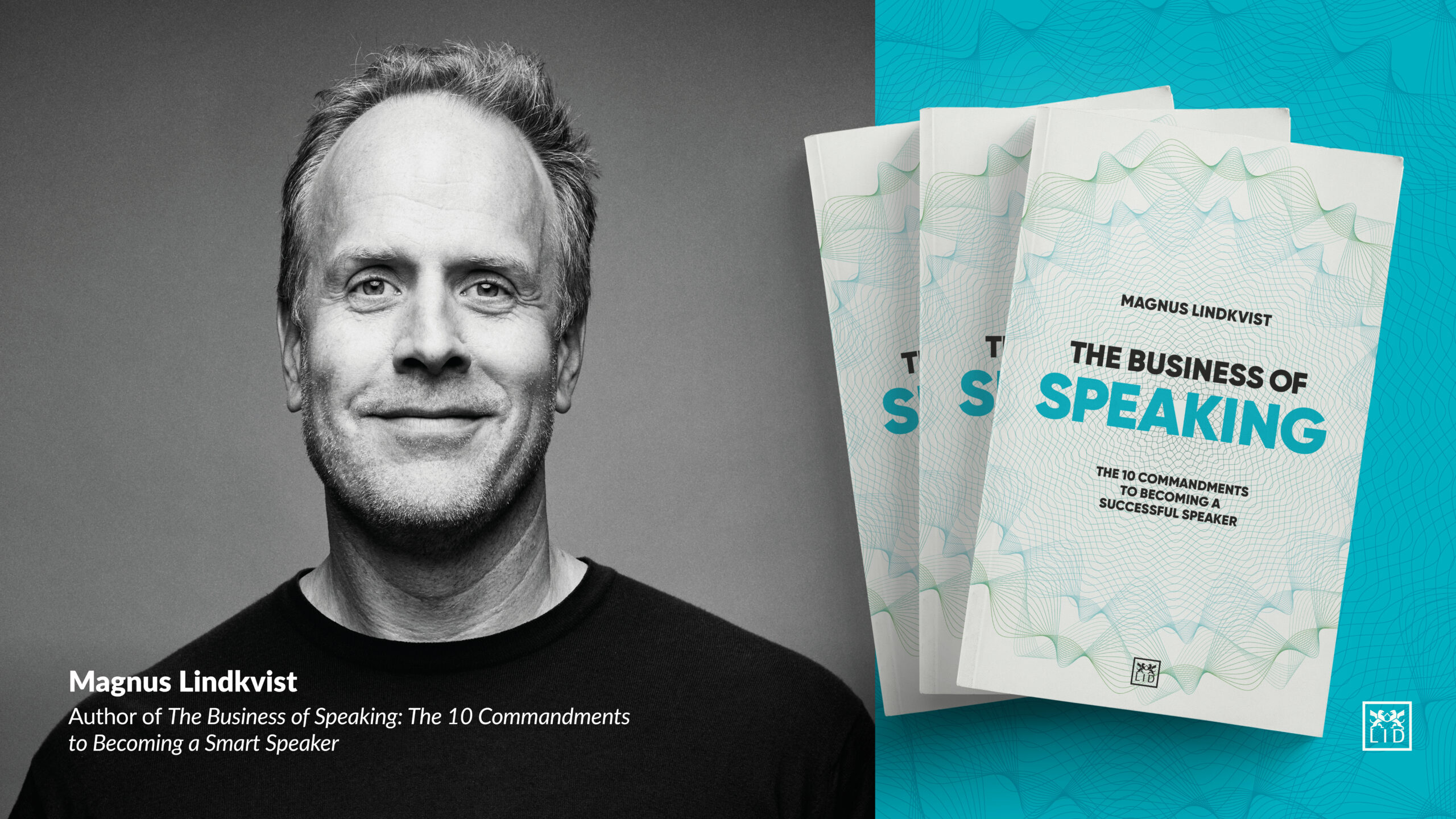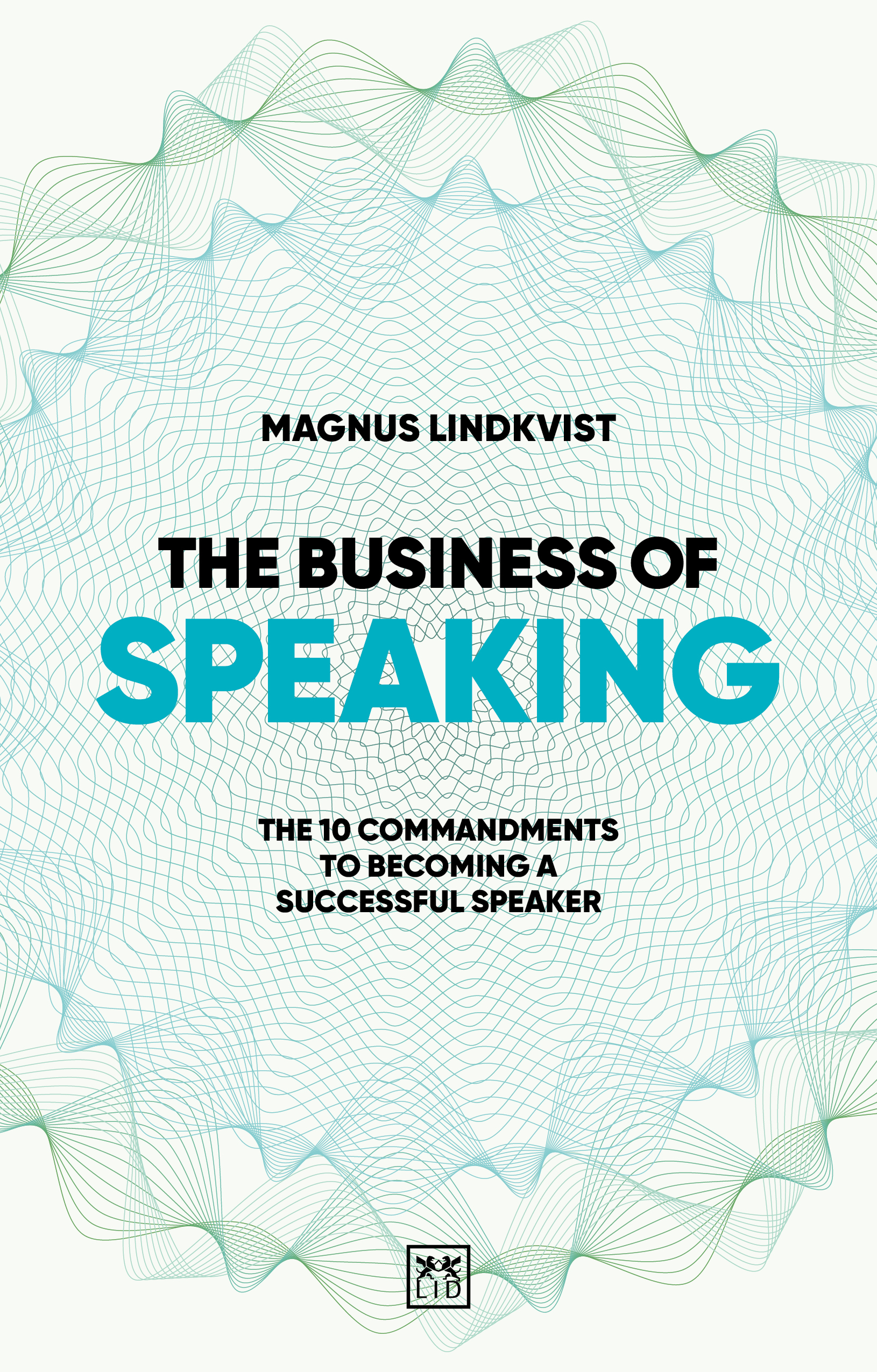|
Thou Shalt Treat Other Speakers With Grace and Generosity with Magnus Lindkvist
Thou Shalt Treat Other Speakers With Grace and Generosity

Book Excerpt from The Business of Speaking by Magnus Lindkvist
I realized that something was off when the moderator called my name as a cue to walk onstage. There was no polite applause, just a loud murmur, as if the audience was confused. At least the other speakers entered to the sound of hands clapping. And surely, I was a lot better than they were.
Or so I thought.
The event was ‘The Great Day of Inspiration’ in Gothenburg’s largest conference venue. Hundreds of people had paid – or had their company pay – to attend a packed agenda full of “leadership advice, inspirational stories and thought leadership.”
Mountain climbers, stand-up comedians and management gurus were to share the eight-hour agenda and give the audience value for their money.
The big draw was supposed to be the late, great Professor Hans Rosling of TED Talk fame. He had garnered a reputation in Sweden as a straight-talking, no-non-sense public health professor invited to news broadcasts and talk shows to share his unorthodox view of health, Africa, pandemics and beyond. He had reached nearly god-like status at this time, and most of the audience was there solely for him.
Only, he had cancelled due to ill health, and I would be his replacement. It was a daunting task, but I felt ready, willing and able to step out of his shadow and into the limelight.
All the other speakers that day had been underwhelming, or so I thought. Mediocre amateurs and nowhere near the prestigious speaking slot given to me, the Great Futurologist.
I waited anxiously in the wings for my chance to shine. Outshine the others and let the audience know that I was the Crown Prince to Rosling’s King.
If only the organizers had told the audience in advance that there would be no Rosling.
As the moderator started to announce the next speaker, you could hear the disappointment rising from the crowd. No applause for me, just a bewildered murmur with a palpable sense of irritation. They had all been tricked, so they wouldn’t cancel their tickets.
Instead of a beloved deity, some random dude stood onstage before them.
To them, I was not even a nobody but less than zero.
Whatever I tried in my talk, nothing worked. Not humour, not inspiration, not a single one of my examples. I might have managed the odd giggle or lazy hand clap as I walked off stage, but I doubt it.
On a day full of mediocre amateurs, I became the worst-rated speaker. And I deserved it. This chapter is about keeping your head out of what I call ‘the asshole sky’ and staying grounded, curious and courteous, especially when it comes to dealing with other speakers.
THE CHAMPIONSHIP VOID
Sigmund Freud, the renowned psychologist, highlighted a peculiar aspect of human behaviour: our tendency to engage in conflict, ridicule or argument stems more from a hyperawareness of minor differences among us than from significant disparities. This phenomenon, strikingly evident in the intense rivalries between football teams from the same city, is what Freud termed the ‘narcissism of small differences.’ This same concept applies to the speaking community, particularly evident during events like ‘The Great Day of Inspiration.’ Despite speakers sharing professions, platforms and the goal to inspire, these similarities can paradoxically fuel feelings of animosity among them.
The speaking profession isn’t immune to other, broader social phenomena either. ‘Tall Poppy Syndrome’ in Australia describes the critique and envy directed at those who have achieved success, particularly if that success is seen as unearned. This sentiment is not unique to any one culture; it finds echoes in the Japanese proverb, “The nail that sticks up gets hammered down,” and the Nordic Law of Jante, “You’re not to think you are anything special,” among others. These societal attitudes, often dismissed as mere jealousy, play a crucial role. They remind us that success is not solely the result of individual effort but also involves a significant degree of luck. This is particularly relevant in public speaking, a field with low entry barriers and no clear parameters for competition, leading to what we can call the ‘championship void.’
This void can foster resentment and paranoia as speakers obsessively compare income statements, social media engagement and audience feedback to gauge their relative standing. The lack of a clear ‘winner’ or ‘loser,’ as found in sports competitions, exacerbates this issue. However, during the conference in Gothenburg, I realized that this perspective is fundamentally flawed. Unlike in competitive sports, success in speaking is not zero-sum. A well-received presentation benefits the speaker and enhances the event’s overall value, encouraging audiences to return. The real adversary is not other speakers, but events that fail to offer professional, engaging presentations, leaving audiences to endure lacklustre speeches or workshops. In truth, we are all in this together, striving to create memorable and enriching experiences for our listeners.
IT’S LONELY AT THE TOP AND THE BOTTOM
There are few professions as lonely as public speaking. You travel alone, sit alone, are invited to events as an outsider and perform on a stage in isolation. To keep your sanity in check requires a careful balancing act between stimulation – without overdoing it with substance abuse or gambling addiction – and boredom. The hours take their toll, and if you are far away from loved ones and feel the effects of sleep deprivation, self-hatred can easily set in. It happens to most speakers – and most people – at some point.
When I spoke at an event called Change Makers Lab – a day focusing on sustainability and the circular economy – it happened to a fellow speaker of mine, who could not refrain from writing the following about my talk: “In the future, futurologists will hopefully have fewer quotes, fewer funny images and fewer ppts. #change-makerslab.” It was a comment intended to mock and ridicule. Even though my name was not mentioned, my job title and the event name made it easy to see whom the comment targeted. I felt wounded, of course, but I knew the comments came from a place of hurt and despair – as if the attention I got onstage was stolen from him. I, too, have made similar comments and know they are the bastard children of resentment, envy and loneliness. The corrosive effects of being a public speaker take their toll in the long run, and nobody is immune to it. This is why the profession owes itself compassion, camaraderie and tips for resilience.
Digital etiquette – being kind, encouraging and courteous – goes without saying, but it must be taken further. Be candid about your failures and shortcomings, as they will help others see the pitfalls. Be open about mental suffering, as it makes you relatable. Be kind to yourself and others – the only known antidote to loneliness. And always, always push the elevator back down again.
ABOUT THE AUTHOR
Suggested Reading
 A wide range of people –from consultants, coaches, executives to academics, authors, journalists and scientists –are also speakers today. Indeed, anyone with expertise, knowledge or motivation can and should become a public speaker. But to become a successful speaker requires a certain savviness and understanding of what really oils the engine of the speaking world. Written by one of the world’s most in-demand business speakers, this book presents 10 essential rules to guide anyone who wants to launch themselves as a speaker.
A wide range of people –from consultants, coaches, executives to academics, authors, journalists and scientists –are also speakers today. Indeed, anyone with expertise, knowledge or motivation can and should become a public speaker. But to become a successful speaker requires a certain savviness and understanding of what really oils the engine of the speaking world. Written by one of the world’s most in-demand business speakers, this book presents 10 essential rules to guide anyone who wants to launch themselves as a speaker.

 Magnus Lindkvist is a visionary futurologist and trendspotter, renowned for his subversively humorous and insightful keynotes. With a master’s in business and economics from the Stockholm School of Economics and a film production degree from UCLA, Magnus combines academic rigour with Hollywood storytelling. Over nearly three decades, he has enthralled audiences globally, sharing profound insights into creativity, innovation and future trends.
Magnus Lindkvist is a visionary futurologist and trendspotter, renowned for his subversively humorous and insightful keynotes. With a master’s in business and economics from the Stockholm School of Economics and a film production degree from UCLA, Magnus combines academic rigour with Hollywood storytelling. Over nearly three decades, he has enthralled audiences globally, sharing profound insights into creativity, innovation and future trends.